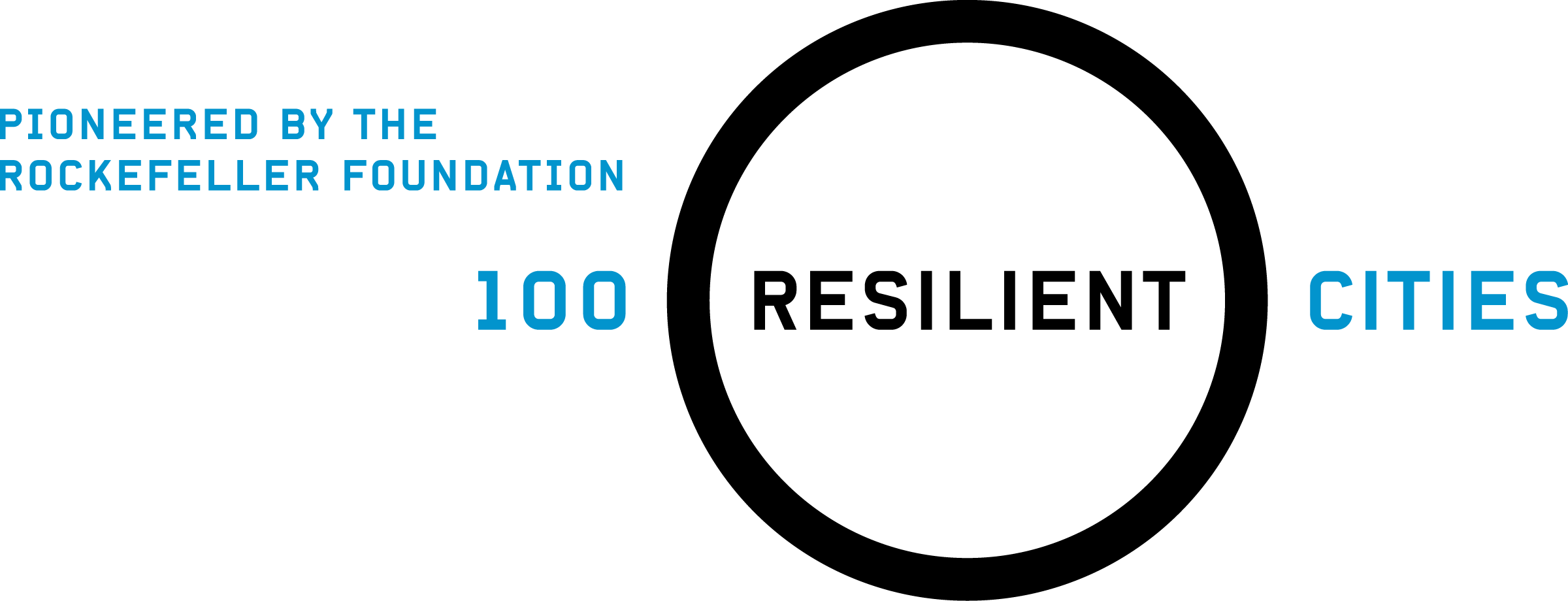
100 Resilient Cities—Pioneered by the Rockefeller Foundation (100RC) is dedicated to helping cities around the world become more resilient to the physical, social and economic challenges that are a growing part of the 21st century.
100RC supports the adoption and incorporation of a view of resilience that includes not just the shocks—earthquakes, fires, floods, etc.—but also the stresses that weaken the fabric of a city on a day to day or cyclical basis.
Examples of these stresses include high unemployment; an overtaxed or inefficient public transportation system; endemic violence; or chronic food and water shortages. By addressing both the shocks and the stresses, a city becomes more able to respond to adverse events, and is overall better able to deliver basic services in both good times and bad, to all populations.
Cities in the 100RC network are provided with the resources necessary to develop a roadmap to resilience along four main pathways:
-
Financial and logistical guidance for establishing an innovative new position in city government, a Chief Resilience Officer, who will lead the city’s resilience efforts;
-
Expert support for development of a robust resilience strategy;
-
Access to solutions, service providers, and partners from the private, public and NGO sectors who can help them develop and implement their resilience strategies; and
-
Membership of a global network of member cities who can learn from and help each other.
Through these actions, 100RC aims not only to help individual cities become more resilient, but will facilitate the building of a global practice of resilience among governments, NGOs, the private sector, and individual citizens.
100 Resilient Cities—pioneered by the Rockefeller Foundation is financially supported by the Rockefeller Foundation and managed as a sponsored project by Rockefeller Philanthropy Advisors (RPA), an independent 501(c)(3) nonprofit organization that provides governance and operational infrastructure to its sponsored projects.
Our History
We began working with our first group of 32 cities in December of 2013. In 2014, we received 330 applications from 94 countries for our second cohort, and we announced the 35 cities of round 2 in December . The third 100 Resilient Cities Challenge closed in November of 2015 and we announced our final group of cities in May 2016 .
Members of the 100 Resilient Cities team and a panel of expert judges reviewed over 1,000 applications from prospective cities. The judges looked for innovative mayors, a recent catalyst for change, a history of building partnerships, and an ability to work with a ride range of stakeholders